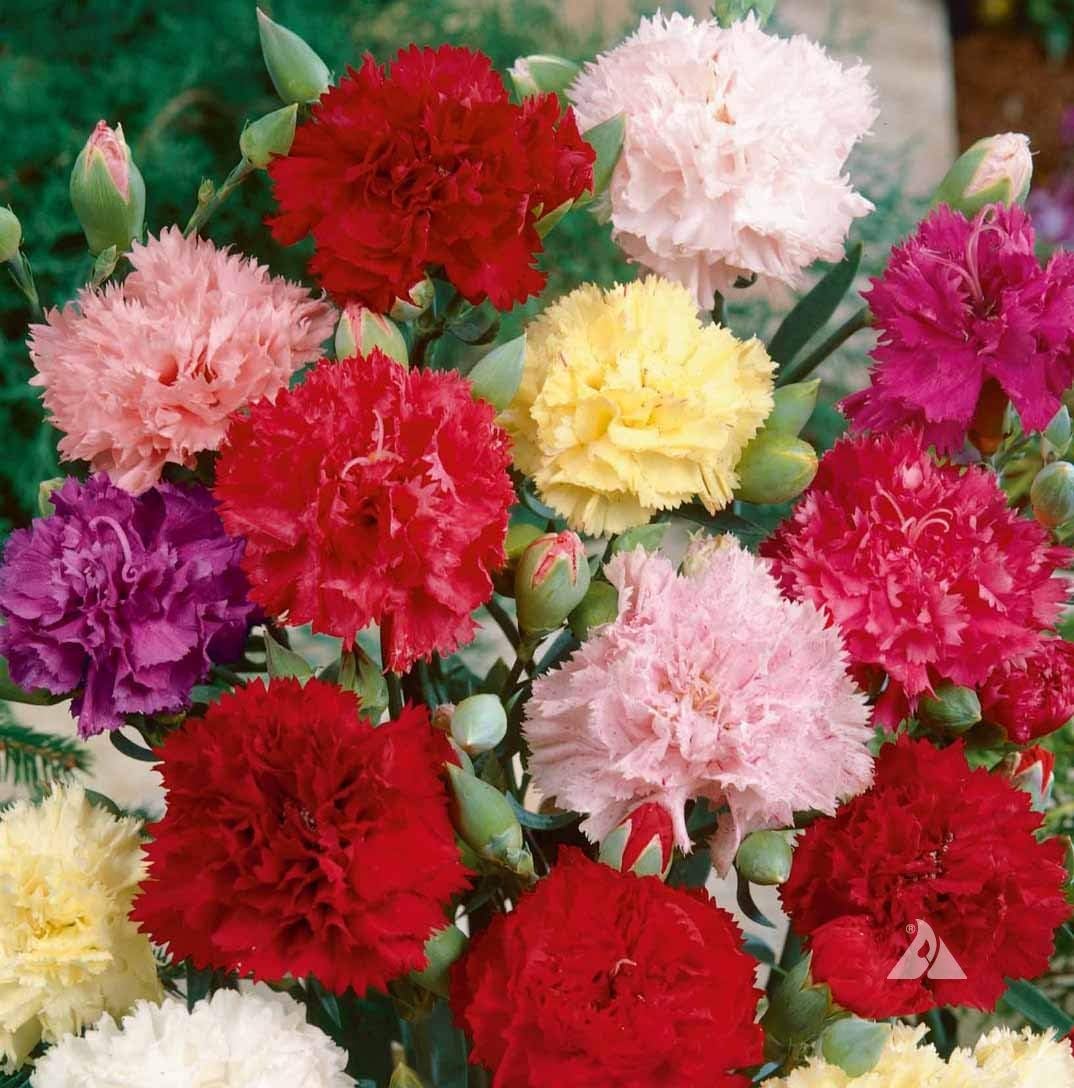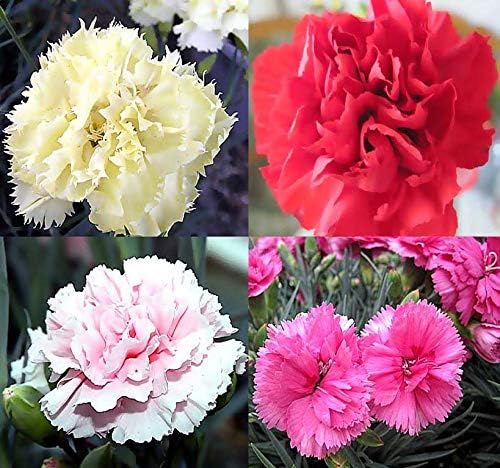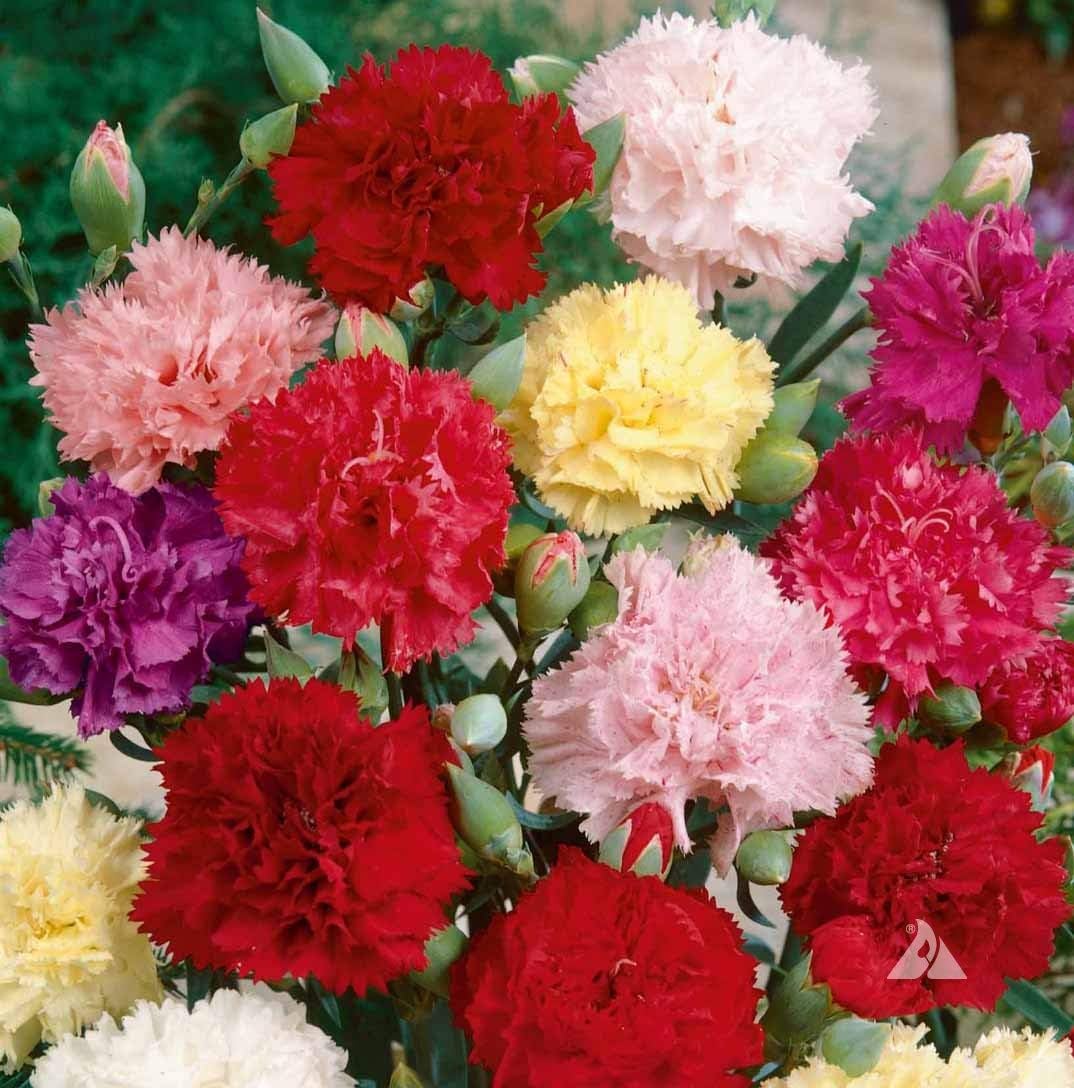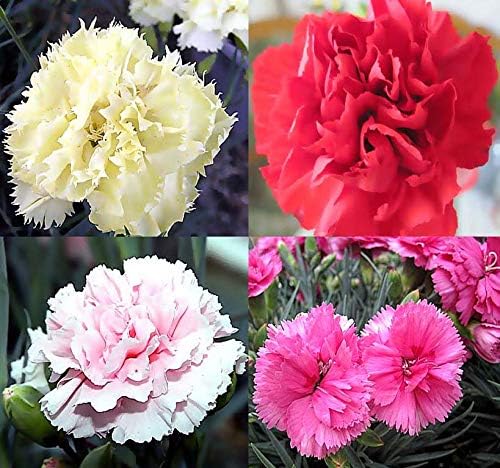Clove flower Dianthus caryophyllus seeds for planting in home garden or backyard flower beds
Couldn't load pickup availability
Description
Clove Seeds (Dianthus caryophyllus)
Characteristics and Uses of Clove Plants
Clove plants, scientifically known as Dianthus caryophyllus, are cherished for their exquisite fragrance and vibrant blossoms. Commonly referred to as carnations, these perennials are known for their ruffled petals and a delightful spicy scent. Popular in flower gardens and floral arrangements, they bloom in a variety of colors, making them a stunning addition to any garden. Their long stems and extended blooming season make them ideal for cut flowers and decorative displays.
Growing Conditions for Clove Plants
For optimal growth, ensure the following conditions:
- Light Requirements: Full sun to partial shade, with at least 4-6 hours of sunlight daily.
- Temperature Range: Prefers moderate temperatures between 50°F and 75°F (10°C to 24°C).
- Soil Type: Well-draining, loamy soil with a slightly alkaline to neutral pH.
Planting Tips for Clove
Follow these best practices for successful germination:
- Sowing: Scatter the seeds lightly on the soil surface and press them down gently without covering them too deeply.
- Spacing: Maintain a 6-12 inch distance between plants for proper air circulation.
- Germination: Seeds typically sprout within 7-1days under warm and moist conditions.
Watering Instructions and Tips
Proper hydration is key for healthy clove plants:
- Frequency: Water when the top inch of soil feels dry, ensuring the roots receive deep hydration.
- Method: Avoid overhead watering to prevent fungal issues—use a soaker hose or water at the base.
Growing Zones
Dianthus caryophyllus can be cultivated successfully in multiple climates:
- USDA Zones: Best suited for zones 6-10, but can be grown as an annual in cooler regions.
- Global Adaptability: Performs well in temperate and Mediterranean climates with proper care.
Key Benefits & Uses
Growing clove plants offers numerous advantages:
- Beautiful Blooms: Provides stunning, fragrant flowers in shades of pink, red, white, and yellow.
- Long Flowering Period: Blooms from late spring through fall with proper deadheading.
- Pollinator Attraction: Attracts beneficial pollinators like bees and butterflies.
Best Uses in the Garden & Landscape
Enhance your outdoor spaces with Dianthus caryophyllus by incorporating them in:
- Cut Flower Gardens: Ideal for bouquets and floral arrangements due to their long-lasting blooms.
- Border Plantings: Perfect for edging flower beds and adding color to pathways.
- Container Gardens: Thrives in pots and raised beds for patios and balconies.
Conclusion
With its exquisite fragrance and striking blossoms, Dianthus caryophyllus is a must-have for any gardener. Whether grown in garden beds, borders, or containers, its versatility and beauty make it a standout choice. bijaseeds, a big, trusted name in the seed world, offering a wide range of high-quality, non-GMO seeds to gardeners everywhere, ensures you receive the best quality seeds for successful cultivation.
FAQ
How do I grow clove plants from seeds?
Sow the seeds on well-draining soil, keep them moist, and provide warmth and indirect sunlight until germination occurs in 7-1days.
When do clove plants bloom?
They typically bloom from late spring through fall, with peak flowering in early summer.
Are clove plants easy to maintain?
Yes, they require minimal maintenance once established, needing only occasional watering, deadheading, and moderate fertilization.





